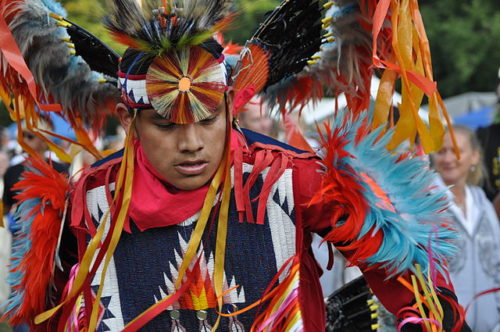SUBSCRIBE TO THE FREE NEWSLETTER
Help support Cascadia Magazine & Cascadia Daily
Thanks for reading the Pacific Northwest’s tastiest selection of news, culture, and thought-provoking writing. Each weekday, we hand-pick an assortment of stories relevant to life in the Cascadia region (encompassing Oregon, Washington, British Columbia, and parts of Idaho and Northern California). Every day you’ll find a selection of links to news stories, essays, fiction, poetry, and art — spanning the wide diversity of cultures and people in Cascadia.
This newsletter is part of a larger project: the on-line, non-profit publication called Cascadia Magazine. It’s our goal to publish high-quality writing exploring ideas and culture in the Pacific Northwest. Cascadia Magazine is a home for journalism, arts profiles, environmental reporting, fiction, poetry, essays, book reviews, and photo essays, — all focused the people and places in the bioregion.
We’re a reader-supported publication, and we depend on the generous financial support of readers like you. Please take a moment to help Cascadia Magazine continue to publish great writing by visiting our donate page and helping us meet our goal of $15,000 in the month of October.
And If you’re already a supporter, thank you!
A Cascadia Magazine original:
Creating North Cascades National Park
According to a story online at Crosscut, a scientific new report finds that climate change is hitting national parks hard— and that parks in Cascadia such as North Cascades national park are finding glaciers shrinking and higher temperatures threatening flora and fauna. In Lauren Danner’s feature online now at Cascadia Magazine, learn how the park was created 50 years ago this month, and the coalition of hikers and conservationists who came together to protect these landscapes — and how a new generation will need to face new challenges. Read the full article online here.
Indigenous People’s Day across Cascadia
Forget Columbus and Canadian Thanksgiving — today is Indigenous People’s Day, a time to recognize First Nations and Native people, arts, issues and lands across Cascadia. Patch reports on the day’s events in Western Washington, while The Stranger lists Seattle-area goings-on throughout the week. The East Oregonian reports on trying to get recognition for Native issues beyond this one day. Crosscut notes that Seattle-area tribes are working to remove totem poles from the city that don’t represent local cultural traditions (most are from BC or Alaska). The Narwhal has a great photo essay on the environmental destruction caused by energy projects British Columbia’s Peace Valley (and First Nations opposition to it). And finally, via Mashable, learn about the Native Land Map, a cool online project and app that tells you what Indigenous tribes and nations are associated with all locations in North America. It’s the work of Victor C Tambrano, a BC-based geographer who was born in traditional Katzie territory and raised in the Okanagan. Check out the Native Land Map here.
Oregon gubernatorial candidates on homelessness
OPB has a detailed report on how the two candidates for Oregon governor plan to address the crisis of 23,000 people who are homeless in the state — Kate Brown favors increasing state funding to build affordable housing, while challenger Knute Buehler is for decreased building regulations and making state land available for housing. Meanwhile, CBC looks at how a vacant block in Vancouver has become a homeless encampment — and looks at the area’s shameful history, when a largely black community there was displaced to build a highway.
Is proportional representation coming to British Columbia?
Voters in BC will chose whether to change to a system of proportional representation in the provincial legislature, and The Tyee has a detailed series of articles on the various PropRep systems voters can choose from. Sightline Institute has more on the pros & cons of various PropRep approaches.
Washington could become the first state with carbon fee
A distressing new scientific report from the IPCC says we have only a few years to stop disastrous consequences of climate change — and Washington could take a big step by becoming the first US state to pass a fee on carbon via initiative 1631, which has seen well-funded opposition from fossil fuel companies. At the Georgia Straight, Travis Lupick points out that BC’s recent approval of huge LNG projects will set back the province’s climate goals despite its carbon tax.
Indigenous writing by Tremblay, Woody, Robinson & Mailhot
In honor of Indigenous People’s Day, here are four selections online by Indigenous women writers from across Cascadia:
“Meditation on the Dalles Dam,” poetry by Gail Tremblay, who is Onondaga and Micmac decent.
“Electricity is humming in a spider web of lines
as copper wires cased in rubber cross the land;
what sorrow builds in this sound that only whines…”
“Home and Homelessness“, a poem by former Oregon poet laureate Elizabeth Woody, an enrolled member of the Confederate Tribes of Warm Springs:
“The buildings are worn.
The trees are strong and ancient…”
“I Used to Give Men Mercy,” a frank essay about the author’s journey from webcam girl through the horrors of an MFA creative writing program, by Terese Mailhot of the Seabird Island First Nation:
“The man snoring on my couch used to be my lover. He forgets I am pretty. I don’t. He forgets many things, but he cannot forget that I am venerable now.”
An excerpt from “Trickster Drift,” the latest comic novel from Eden Robinson, of Haisla and Heiltsuk heritage.
“Her particular talent was hexes, though she preferred giving her enemies a good old-fashioned shit-kicking. Curses tended to bite you in the ass, she’d told him, and weren’t nearly as satisfying as physically throttling someone.” (Read an interview with Eden Robinson at Cascadia Magazine here.)
That’s today’s edition of Cascadia Daily, produced in an office located on Duwamish and Puget Sound Salish lands. –Andrew Engelson
Photo credit: pow-wow dancer by Joe Mabel CC BY-SA 3.0

